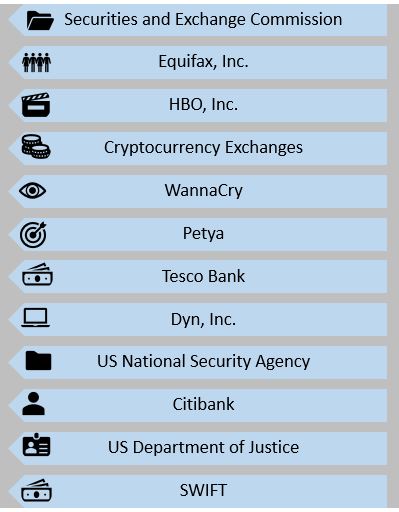Underwriting Exposures and Cyber-Insurance Evolution Examined by Fitch

October 06, 2017

Cyber-insurance has been a profitable business line for early market entrants and is a rapid growth segment, with global premium volume set to increase six- to eightfold within a decade, Fitch Ratings said in a September 27, 2017, report titled Cyber Insurance—Risks and Opportunities (Global Non-Life Insurer Underwriting Exposures Examined).
Among other facets, the report reveals the following.
Challenges Faced by Insurers and Policyholders
- Cyber-insurance is an emerging business line that presents unique, new risks for insurers.
- Limited historical loss data creates difficulty in pricing coverage.
- The nature of cyber-risk and the wide variety of potential cyber-events add to challenges in quantifying risk aggregations and catastrophe loss potential.
- A lack of standardized policy language and terms can also lead to meaningful differences in individual insurers' product offerings, which is a source of confusion and uncertainty for policyholders.
- Insurers that lack cyber-underwriting expertise, poorly manage their risk accumulations, or fail to recognize loss potential from "silent" cyber-exposure in their traditional commercial insurance products could face pressure on earnings, capital, or even ratings, if large loss scenarios emerge as the market expands.
- Unduly large cyber-risk aggregations of specific insurers may not become evident until after a large or catastrophic cyber-event.
Key Underwriting Factors
The report identifies the following key factors to consider for underwriting cyber-insurance risk. These factors are described in more detail within the report.
- Types of data handled
- Past loss experience
- Data protection and controls
- Disaster recovery and business continuity plans
- Risk of suppliers, vendors, and business partners
- Website activity and content
Diversification Benefits Less Apparent
The benefits of geographical diversification for an insurer's credit profile are not necessarily as strong for cyber-exposure relative to other insurance lines. Recent ransomware attacks show that digital interconnectedness across the world can lead to a very wide geographic footprint for a single cyber-disaster. Risk concentrations may be more correlated to factors other than industry or geography, such as concentrated exposure to one electronic payment processor or firewall system.
Recent Notable Cyber-Incidents
The report identifies the following notable recent cyber-incidents and identifies the type of cyber-risk presented with each incident.
FITCH REPORT: NOTABLE RECENT CYBER-INCIDENTS

Source: Cyber Insurance—Risks and Opportunities, Fitch Ratings, September 2017.
Growth Drivers and the State of the Cyber-Market in the United States and Europe
- The global market for stand-alone cyber-coverage is estimated to have grown to between $2.5 billion and $3.5 billion annually.
- Growth is driven by increasing risk and awareness of cyber-attacks, such as the theft of an estimated 143 million individuals' personal data from credit monitoring agency Equifax between May and July 2017.
- More active cyber-regulation in the United States is a prime factor behind an estimated 90 percent of global cyber-premium originating there.
- Developing cyber-regulation in Europe and elsewhere is likely to spark demand for coverage.
- The European General Data Protection Regulation (GDPR) implementation in May 2018 will introduce more stringent notification requirements that increase awareness of the prevalence of data breaches.
- The GDPR will also expose organizations to large fines for data breaches—up to 4 percent of turnover—although it is not clear whether insurance would be allowed to cover these.
Fitch Ratings Implications
Fitch expects cyber-insurance business to be ratings neutral for most highly rated insurers with sound underwriting, particularly as it represents a relatively modest percentage of individual insurers' overall premium volume and risk exposure.
Read the report (registration is required for access).
October 06, 2017
